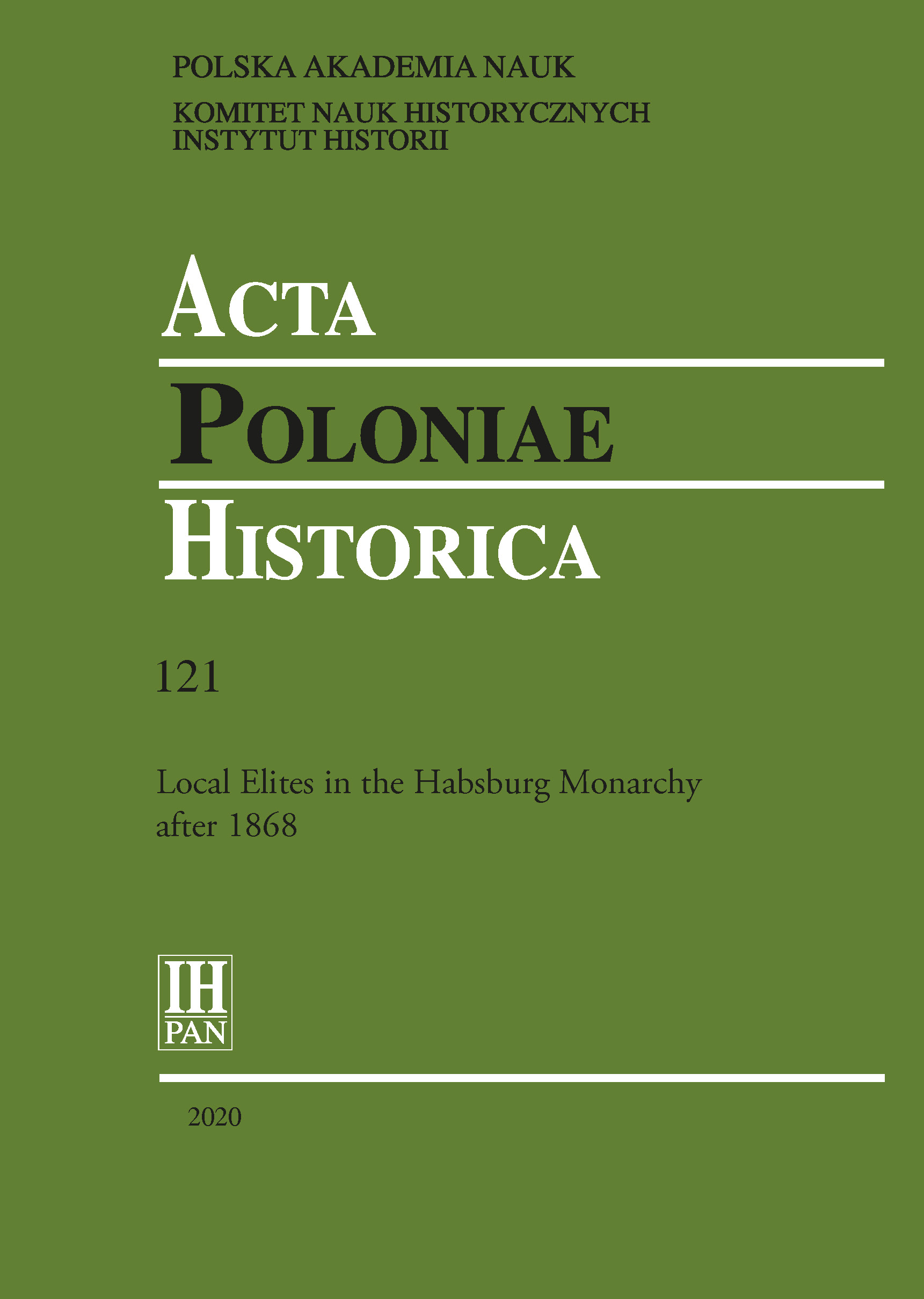Slovenian Elites in Trieste and Their Role in the Formation of Local Communities
DOI:
https://doi.org/10.12775/APH.2020.121.03Schlagworte
Trieste, Ivan Nabergoj, local elites, Slavic elites, habitus, Slovenian cultureAbstract
This text discusses the formation of Slovenian local elites in Trieste in the late nineteenth and early twentieth centuries. A significant part of the analysis presented here concerns the habitus of the elite and the attitudes expressed through the significance they attached to being members of the elite. Drawing on the discourses presented in the Slovenian and Croatian press published in Trieste, as well as biographical sources, this article outlines the vision of society held by the political leaders of the local community. It emphasises how the elites gave expression to their habitus in the public sphere through a variety of institutional activities. I argue that the life of the Slovenian politician and social activist Ivan Nabergoj, a figure central to this text, constitutes an ideal-type committed biography. In conclusion, I address the relationship between the elites and the surrounding community, arguing that elites were representatives of the community while also determining the forms of group belonging by their shaping of mechanisms of consolidation. In this article, I also consider the particularities of the political conditions of Slovenians living in the Slavic-Italian borderlands.
Literaturhinweise
Bourdieu Pierre, Language and Symbolic Power, trans. Gino Raymond and Matthew Adamson (Oxford, 1990).
Cetnarowicz Antoni, ‘Słoweńskie programy narodowe do roku 1914’, Prace Komisji Środkowoeuropejskiej PAU, i (1993), 35–50.
Cetnarowicz Antoni, ‘Zjednoczona Słowenia. Z problematyki słoweńskiego ruchu narodowego w połowie XIX wieku’, Balcanica Posnaniensia, vi (1993), 23–37.
Čok Štefan, ‘Ivan Nabergoj, the “Never to Be” Mayor of the Slovenes in Trieste (1873–1897)’, Studia Historica Slovenica, xvii, 1 (2017), 65–84.
Čok Štefan, ‘Slovensko-italijanski in hrvaško-italijanski odnosi preko poročanja tržaških časopisov 1866–1882’, Acta Histriae, xx, 1–2 (2012), 189–210.
Falski Maciej, ‘Czytanie i ontologia narodu. Chorwacki i słoweński ruch czytelniany w drugiej połowie XIX wieku’, in Ewa Łukaszyk and Krystyna Wierzbicka-Trwoga (eds), Niewłasne lektury. Od pisarstwa w języku wyuczonym do wielości kultur czytania (Warszawa, 2018), 95–114.
Falski Maciej, ‘Semiotics of the “Third Force” MOST and the Performative and Visual Dimension of Political Life in the Post-electoral Period in Croatia, 2015’, Narodna umjetnost, lvi, 1 (2019), 27–40, https://doi.org/10.15176/vol56no102.
Grafenauer Bogo et al. (eds), Zgodovina Slovencev (Ljubljana, 1979).
Jurčević Josip, ‘Upravljačke elite u suvremenoj hrvatskoj povijesti’, in Drago Čengić and Ivan Rogić (eds), Upravljačke elite i modernizacija (Zagreb, 2001).
Matić Dragan, Nemci v Ljubljani 1861–1918 (Ljubljana, 2002).
Pletikosić Ivica, ‘Revizije prebivalstva Tresta iz leta 1910’, Annales. Serie Historia et Sociologia, xvi, 2 (2006), 477–82.
Rahten Andrej (ed.), Tvorci slovenske pomorske identitete (Ljubljana, 2010).
Rustja Peter, Med Trstom in Dunajem. Ivan Nabergoj v avstrijskem državnem zboru (1873–1897) (Trst, 1999).
Rustja Peter, Otokar Rybář v dunajskem parlamentu, i (Trst, 2001).
Šterbenc Svetina Barbara (ed.), Novi slovenski biografski leksikon (Ljubljana, 2013).
Vrišer Igor, Razvoj prebivalstva na območju Ljubljane (Ljubljana, 1956).
Wnuk-Lipiński Edmund, Socjologia życia publicznego (Warszawa, 2008).
Žitko Salvator, ‘Slovensko-hrvatski odnosi u Austrijskom primorju u kontekstu “novoga kursa” hrvatske politike 1903–1907’, Histria, vi, 6 (2016), 59–92.
Downloads
Veröffentlicht
Zitationsvorschlag
Ausgabe
Rubrik
Lizenz
Title, logo and layout of journal are reserved trademarks of APH.Stats
Number of views and downloads: 572
Number of citations: 1



